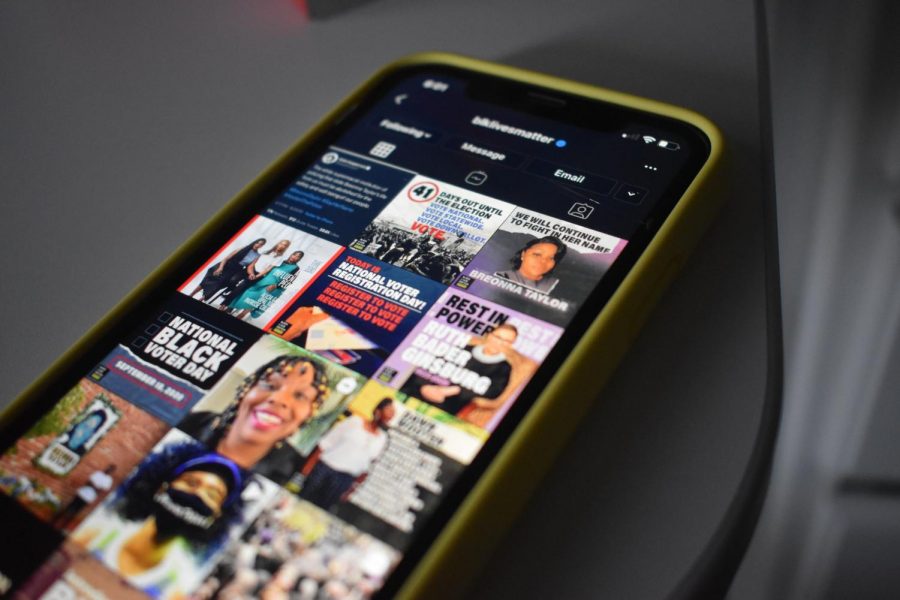Social media influences magnitude of social issues during pandemic
Social media has become a platform for activists during this pandemic.
September 29, 2020
The pandemic has played an unusual role in amplifying social justice issues through social media.
Stripping away all the distractions and noise – like, for many, physical school, jobs and socialization – has revealed the truth of and alternatives to what we actually do. It revealed who corporations consider to be “essential workers,” showing the varying degrees to which businesses value the individual.
It has also revealed how much people value human life and how the government and president view the importance of the common person.
Sweeping away the “noise” has brought forward issues that had previously been suppressed. The badly handled pandemic, the stripping of basic human rights and the general violence have all thrown gas on the flames. Now, people refuse to be silenced.
Another contributor to the rise in awareness of social problems was the widespread isolation during quarantine, as isolation breeds boredom.
Now we suddenly have the opportunity to do everything we’ve previously set aside because we “didn’t have the time”. This includes getting more involved in social justice issues, delving more deeply into social media and reading the news.
As people have been increasingly consuming important material, public awareness of these issues has grown.
Social media provides us with a fairly unrestrained spread of information, which means that no matter how hard a corporation, government agency or individual may try to stifle or misdirect information, people will still uncover it. Of course, that’s both a benefit and a problem.
While information is more available than ever, misinformation spreads like wildfire, and the president is only adding to that.
For instance, he admitted that he knowingly downplayed the severity of the pandemic because he didn’t want to cause a “public panic,” yet fear-mongering and breeding mistrust is his MO. Fact-checkers must be exhausted by now.
This has caused people to increasingly distrust sources of information, especially certain news outlets and social media accounts. This is dangerous because, without objective fact-reporting, people emerge with different “truths” which breeds more conflict.
Public events like peaceful protests can be framed to demonize protestors, and footage can be selected to manipulate viewers by reframing their perception of reality.
The fast spread of misinformation, rumors and propaganda is a dangerous consequence of social media. With unverified claims taken as truth, the power that anonymity provides and the boom in “fake news,” we must be more skeptical about what we consume.
Bailey Poland, author of Haters: Harassment, Abuse, and Violence Online, said that “One of the biggest challenges will be finding an appropriate balance between protecting anonymity and enforcing consequences for the abusive behavior … [in] online discussions.”
As with all technological advancements, there are two sides to every coin.
Social media has played a strong role in aiding the average person and activists gain credibility and reveal suppressed truths that may not make it to the news. It provides something crucial: accountability.
We can see the unfiltered footage of atrocities that would have otherwise been buried, and before those responsible can formally order that the footage be deleted, it has already spread to thousands, made headlines and shined a spotlight on systemic and institutional issues.
Social media has also helped large groups of people around the world organize events like marches, protests and meetings because it is now so easy to connect and inform others. Even something as simple as writing a post can begin a larger conversation.
Movements have been started through social media, like #BlackLivesMatter and #MeToo, to spread mass awareness to ongoing and previously silenced issues.
Despite the politics of this country tearing it apart during these last four years, the pandemic has brought many together in a collective sympathy as well as a larger outrage regarding how it was handled. And, despite the opposition’s best efforts, the conversation of social justice and change has boomed with the help of social media.
The cure to willful ignorance and hatred comes through information and understanding, and hopefully, social media can help us do that too.


